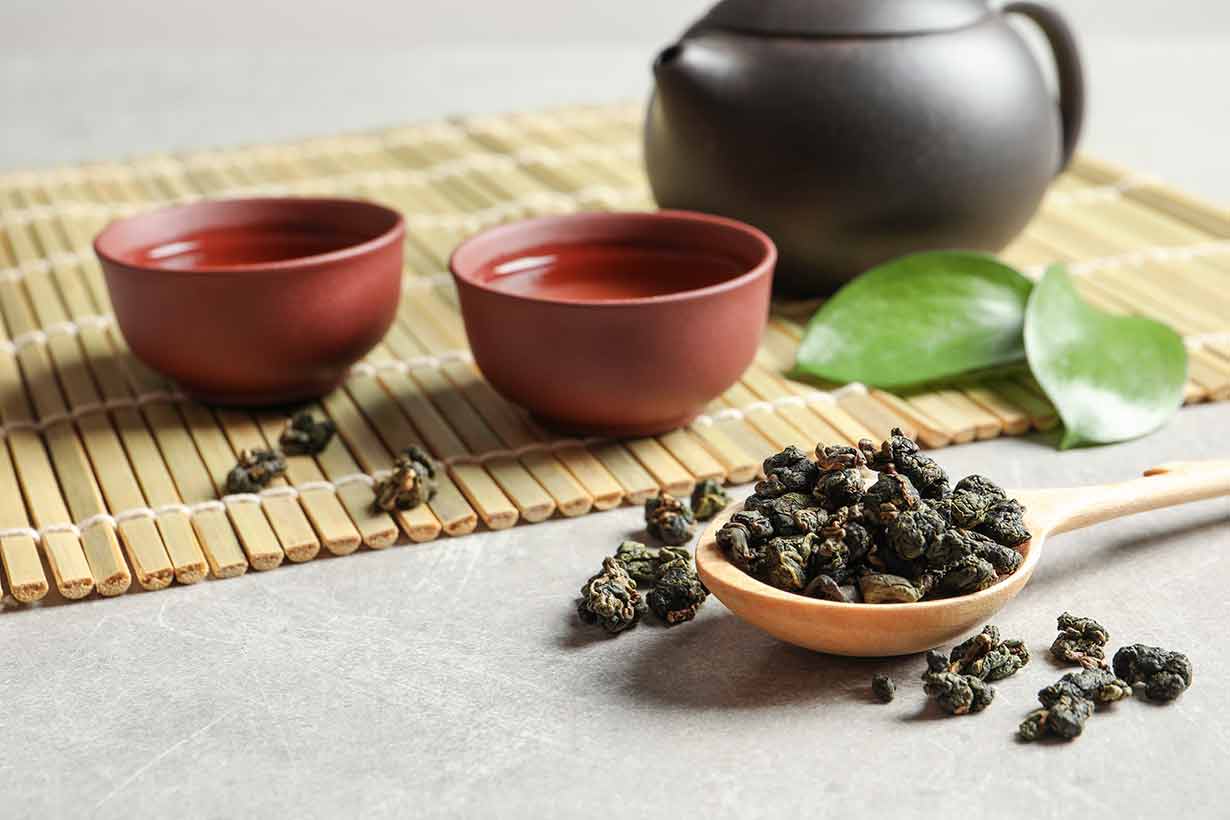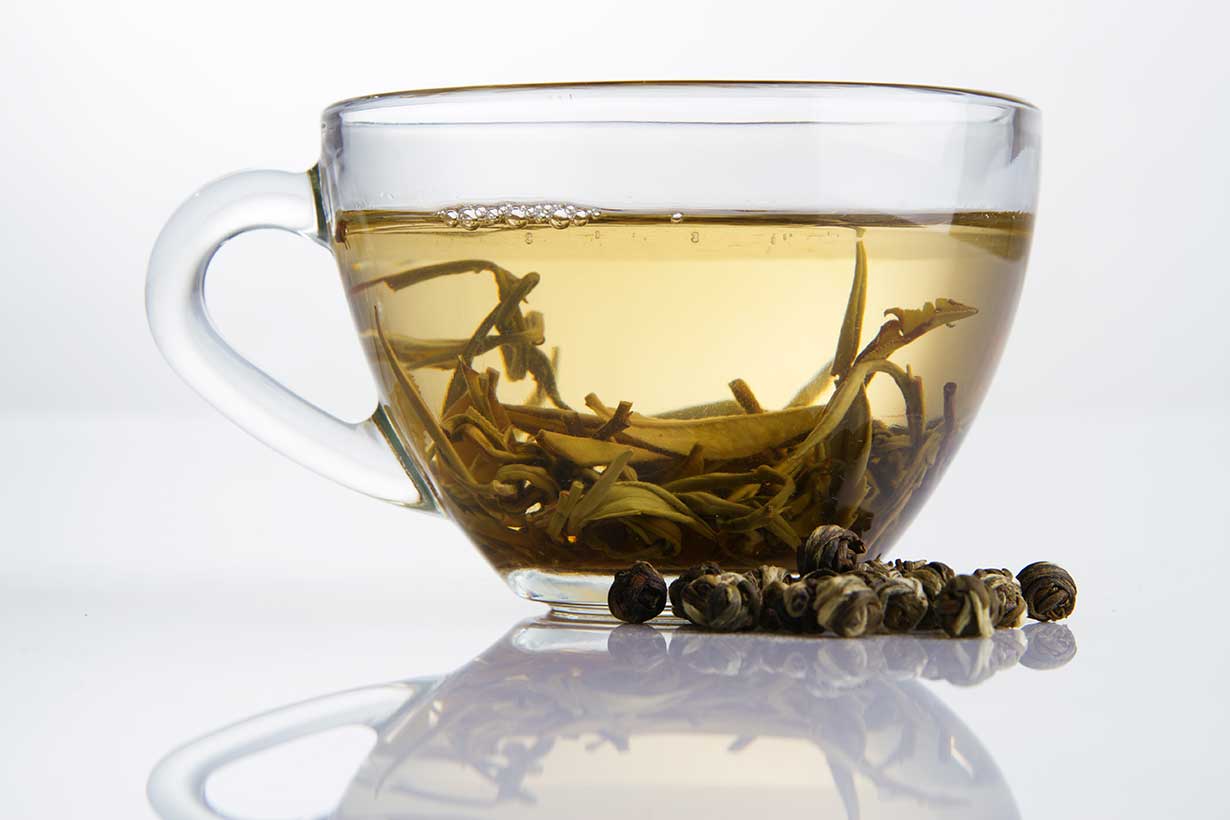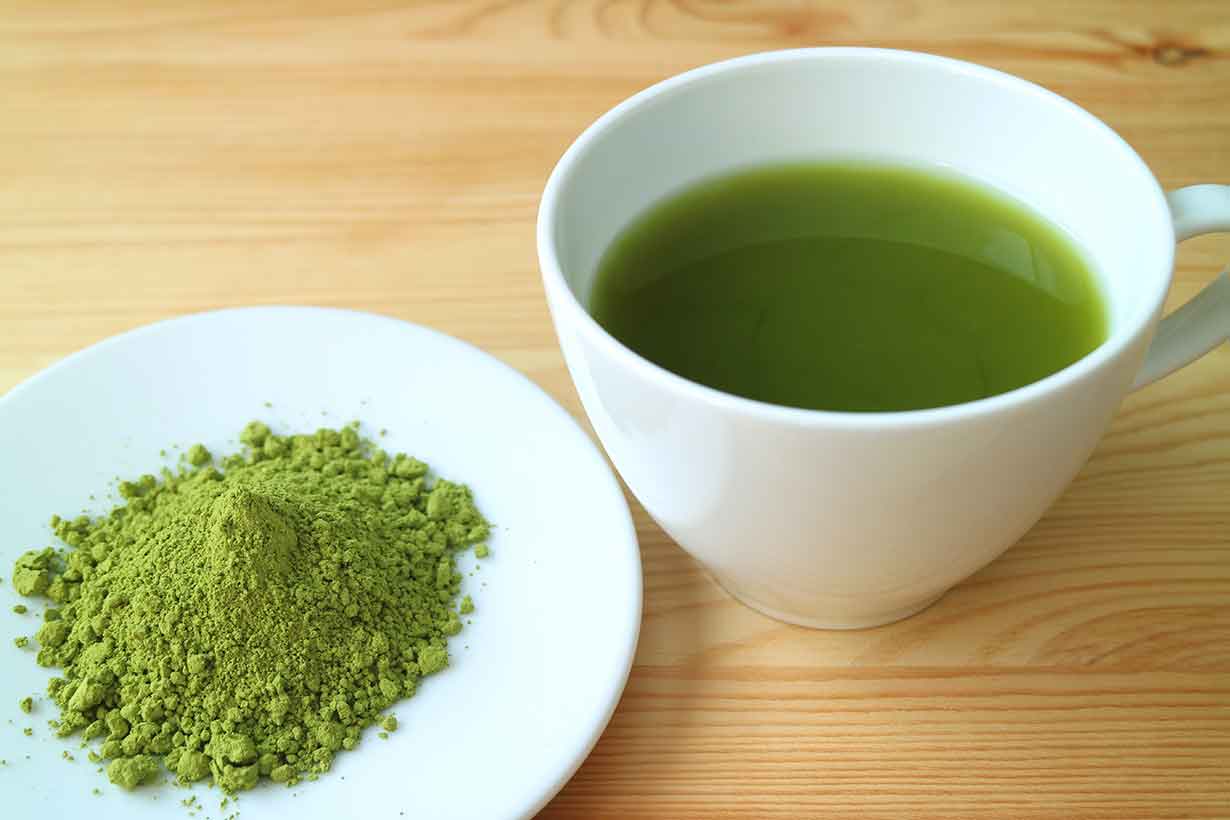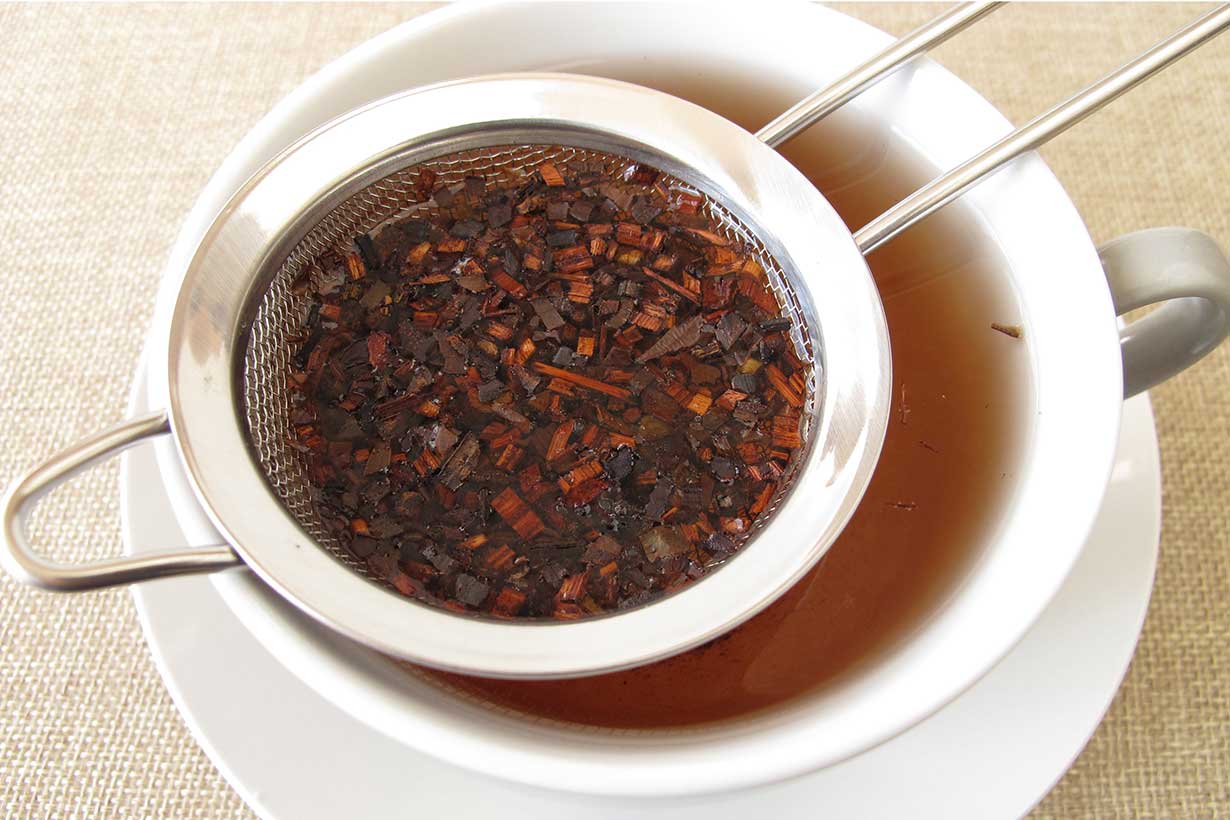
After water, tea is the most popular drink in the world.
While the green variety of tea dominates in the Far East, black tea accounts for the vast majority of sales in the Western world.
As well as tasting great, black tea has a range of potential health benefits.
This article will take a look at the drink in more detail as well as examine the interesting ways in which it may improve our health.
What Is Black Tea?
Tea is available in four different varieties; black, green, oolong, and white.
Interestingly, all four varieties of tea come from the same leaves of the same plant; the Camellia sinensis.
The difference between black and green tea solely depends on the processing of the tea leaves.
The drink has long been valued for its health properties in China and India, where it has been a traditional part of society for many centuries.
In the Western world, tea first came to Europe in the 17th century; arriving in the Netherlands in 1610 and appearing in England in 1658 (1).
A four-step production process is necessary to make black tea;
- First, producers leave the tea leaves to wither and fry in the hot sun to fully oxidize.
- Once the leaves dry, they are then rolled or crushed, which releases fluid from inside the leaves. This liquid contains enzymes that help with the fermentation process.
- After the rolling stage, the tea leaves move to a temperature-controlled room where they are allowed to ferment at 29°C for 2 to 4 hours. Fermentation strengthens the depth of flavor of the tea (2).
- Lastly, the fermented tea leaves then undergo a drying procedure. This drying process lasts for around 20 minutes at a temperature of 80-90°C, which dries the leaf fluid and turns the leaves their distinctive dark brown to black color (3).
Health Benefits of Black Tea
Over the years, numerous research has been undertaken on the health properties of black tea.
Fortunately, there are a lot of positive points to consider.
Here are eleven purported health benefits of drinking black tea.
1. Rich In Polyphenols
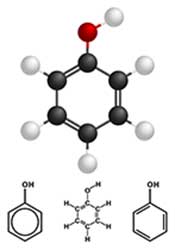
Black tea is a rich source of various polyphenols including flavanols, flavonols, and phenolic acids.
Among these polyphenol groups, black tea is a particularly high source of catechins, theaflavins, kaempferol, quercetin and gallic acid (4).
Directly responsible for the bitter and astringent flavors in tea, these polyphenols are believed to play a part in boosting internal antioxidant systems.
Additionally, they regulate several biological processes, including inflammatory response.
Some polyphenols demonstrate benefits in vitro (test tube) but not in vivo (inside a living organism). However, studies show the benefits of black tea polyphenols both in vitro and in vivo.
For instance, research shows that tea polyphenols help prevent increases in oxidized DNA from carcinogen exposure. Additionally, these polyphenols appear to increase blood-antioxidant levels and lower the risk of chronic disease (5, 6).
2. May Help Regulate Blood-Glucose Levels
High blood sugar levels are harmful whether someone has diabetes or not.
For example, chronically high blood glucose levels are associated with numerous chronic diseases. Various studies link high blood sugar with type 2 diabetes, cancer, vascular disease, and dementia, among others (7).
As a result, keeping blood-glucose levels within a healthy range is something that everyone should strive for. On this note, black tea may play a helping hand.
Research Findings
Firstly, a recent randomized, controlled trial demonstrated that black tea consumption can significantly decrease blood glucose levels following sugar intake (8).
Furthermore, there is a linear inverse association between high black tea consumption and diabetes (9).
Also, several polyphenols found in black tea demonstrate the ability to inhibit carbohydrate hydrolyzing enzymes.
This slowing of carbohydrate digestion would improve blood-glucose regulation, and possibly reduce diabetes risk (10).
3. May Lower the Risk of Cancer

Several systematic reviews and meta-analyses suggest that black tea consumption may reduce the incidence of oral cancer and bladder cancer.
Using 87 datasets, researchers found that the risk of both these cancers consistently fell with a one cup-increase in black tea per day (11).
Despite this, we have to remember that correlation doesn’t equal causation, and there were also no statistically significant effects on other common forms of cancer.
However, further studies show that black tea polyphenols may play an anti-cancer role in the body.
Specifically, black tea polyphenols activate Nrf2 transcription factor, key proteins which upregulate internal antioxidant enzymes (12).
4. Improves Physical Performance
Although most people immediately think of coffee as a caffeine-enriched performance booster, black tea has a similar (but slightly milder) effect.
While an average cup of coffee contains 95 mg, a cup of black tea contains 47 mg of caffeine (13, 14).
Mainly as a result of its caffeine content, black tea has various performance-enhancing benefits. First, as systematic reviews show, caffeine intake can improve strength and muscular endurance (15).
There are also studies showing that doses as low as 100 mg of caffeine have beneficial effects by increasing the ‘time to exhaustion’ during exercise (16).
Coffee is the better choice for performance and exercise, but a cup (or two) of black tea may provide some benefits.
5. Anti-Bacterial Properties

Another benefit of black tea is that it has anti-bacterial properties.
These properties mean that, in some instances, black tea may kill or slow the growth of certain types of bacteria.
Bacteria can cause a range of illnesses, from minor problems such as pimples and skin rashes to potentially life-threatening conditions like meningitis (17).
Specifically, black tea exhibits a protective effect and inhibits the growth of M. luteus and B. Cereus, which are common bacterial infections in humans (18).
Despite this, extracts of black tea have minimal protective effect against other bacteria such as salmonella, E. coli and Staphylococcus aureus.
6. May Improve Dental Health
Firstly, black tea can have a negative yellowing effect on teeth if we don’t brush properly.
However, other than that, it appears to be very healthy for our oral health.
Here is a summary of current research findings;
- Black tea has anti-cariogenic actions (prevents cavities) and suppresses the growth of certain oral bacteria (19).
- In 30 children aged between 12 and 15, black tea inhibited the activity of salivary amylase to “highly statistically significant” level. Amylase is an enzyme that breaks food down into sugars in the mouth (20).
- Black tea polyphenols exert antibacterial activity against major periodontal bacteria. Daily intake of black tea may, therefore, help maintain good periodontal health (21).
7. Improves Focus and Concentration

Once again, owing to the presence of caffeine, black tea can help to improve focus and concentration.
The evidence is clear that caffeine intake can have various cognitive benefits.
Mainly, it can enhance alertness, concentration, decision-making, focus and memory performance (22, 23, 24, 25).
As a source of caffeine, black tea will provide these same benefits in a dose-dependent manner.
One recent study, specifically on black tea, also shows that the drink improves attention, awareness, and daily cognitive function (26).
However, it is worth noting that black tea’s caffeine content can vary depending on the specific tea and brewing method.
8. May Decrease Risk of Stroke
Interestingly, recent studies find a link between reduced stroke incidence and black tea consumption.
One study monitored a total of 75,961 Swedish adults.
Over a follow-up period of 10.2 years, participants drinking more than four cups of black tea per day had “significantly lower risk” of stroke than those who didn’t drink black tea (27).
An additional meta-analysis of nine studies involving 194,965 individuals had similar findings.
In this particular study, people drinking more than three cups per day had a 21% lower stroke risk than people who drank one cup or less (28).
The link between lower stroke risk and higher black tea consumption may be related to blood pressure. Markedly, a systematic review of randomized, controlled trials shows that regular consumption reduces blood pressure (29).
9. Enhances Skin’s UV Resistance

In animal studies, mice fed black tea had significantly fewer UV-induced tumors control subjects (30).
Clearly, what happens to a mouse does not mean the same thing occurs within a human. However, this kind of study is not possible in humans due to the obvious ethical implications.
The hypothesis behind this protective effect is that the polyphenols in black tea enhance the skin’s resistance to UV damage (31, 32).
However, further research is necessary to confirm this.
10. May Help Protect Cardiovascular Health
Cardiovascular disease (CVD) is, unfortunately, a prevalent chronic disease in the world today.
To illustrate this, CVD accounts for a substantial 31% of all deaths, and 17.7 million people die each year from the condition (33).
Although CVD is multi-factorial in causation, there are specific factors which can increase risk.
Some of these include chronic inflammation and high blood pressure (34, 35).
On this note, a wealth of studies show that black tea can help lower blood pressure and exerts some anti-inflammatory effects (36, 37, 38, 39).
Despite this, it is worth remembering that any such effect would only have a slight effect. Chronic diseases are influenced by overall lifestyle choices such as alcohol consumption, diet, exercise, sleep and smoking.
While individual foods and drinks may have a beneficial effect, the overall lifestyle is the most critical consideration.
11. Cheap, Convenient, and Tasty
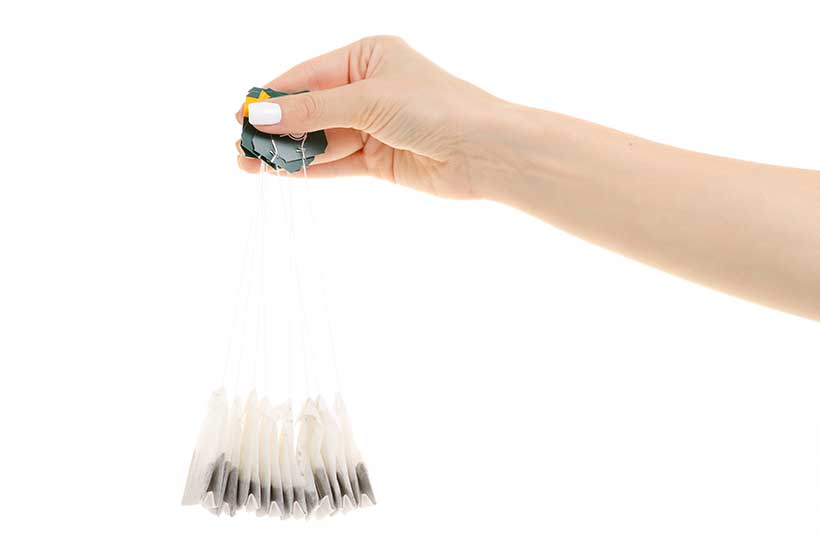
Black tea is a reasonably cheap drink that offers several health benefits.
Furthermore, teabags are very convenient; we can take them to the workplace with ease, and a cup of tea only takes a few minutes to make.
As a result, it is easy for people to enjoy tea no matter where they are.
One last consideration is that tea can be even more beneficial if it is replacing an unhealthier drink choice.
For people who might find plain water unappetizing, tea (and coffee) provide a much healthier alternative to soda and fruit juice.
Black tea also tastes delicious, and there are many tasty ways to make it.
For some tips, see this guide on how to make great-tasting black tea.
Disadvantages of Black Tea
Despite black tea being an overall healthy choice, there are a few potential side effects to be aware of.
While the benefits outweigh the drawbacks, the following considerations can be potential issues;
1) May Impact Iron Absorption
Drinking black tea may inhibit the absorption of iron, and this inhibition is especially likely with (plant-based) non-heme iron.
A variety of studies demonstrate lower iron absorption rates from meals when accompanied by tea (40, 41).
This effect appears to be due to the presence of tannins in black tea (42).
2) Caffeine Sensitivity
Some people have either sensitivity or intolerance to caffeine.
Caffeine sensitivity symptoms may include anxiety, jitters, restlessness, stomach discomfort, and sleep problems (43, 44).
In rare cases, caffeine allergies can even present themselves, which can lead to skin rashes, hives, and in severe cases, anaphylaxis (45).
Since black tea contains a moderate amount of caffeine, it can cause issues for anyone who suffers from caffeine-related problems.
While white tea also contains caffeine, it contains lower amounts and may be more suitable for those with caffeine sensitivity.
See this article on white tea for more information on the drink.
3) Hypokalemia (Low Blood Potassium)
Low blood potassium (hypokalemia) is a severe and potentially life-threatening serious condition (46).
In rare cases, excessive overconsumption of black tea, coffee, and other caffeinated tea has been attributed to causing hypokalemia (47, 48).
It is worth re-emphasizing that this is a very rare condition, and it only usually presents from consuming several grams of caffeine per day.
Different Kinds of Black Tea
Tea plants now grow in many countries around the world, and there are numerous different types of black tea.
These teas are often named based on their region; they can also be either single origin or a blend of different black tea leaves.
Although the flavor of each variety is somewhat similar, there are slight differences in the flavor characteristics.
Some of the most famous black teas are listed below alongside their country of origin;
| Single Origin | Blends |
| Assam (India) | Earl Grey |
| Ceylon (Sri Lanka) | English Afternoon Tea |
| Darjeeling (India) | English Breakfast Tea |
| Golden Monkey (China) | Irish Breakfast Tea |
| Jaekseol (Korea) | Lady Grey |
| Kangra (India) | Masala Chai |
| Keemun (China) | |
| Lapsang Souchong (China) | |
| Rize (Turkey) |
Regarding the tea blends, the ‘breakfast tea’ varieties tend to be the strongest.
Earl Grey and Lady Grey are popular mild-tasting blends.
Many people enjoy bolder breakfast tea for early in the morning, and a lighter blend (such as Earl Grey) for later in the day.
Final Thoughts
All in all, black tea is a popular and delicious drink that offers a variety of health benefits.
Alongside coffee, it is one of the very best early-morning drinks.
That said, given its affordability and convenience, black tea is an excellent option for any time of day.

